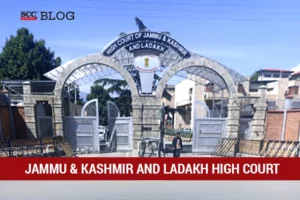Jammu and Kashmir and Ladakh High Court: While deciding the instant petition filed by owners of various hotels/guesthouses in the UT of Jammu and Kashmir praying for issuance of writ of mandamus directing the respondents to the entire amount of interest subsidy in favour of the petitioners through their respective soft loan accounts maintained with their respective Banks, strictly in accordance with the scheme which has been formulated by the Government of India for revival of the hotels/guesthouses; the Bench of Wasim Sadiq Nargal, J.*, directed the respondents to release the amount so claimed within 2 months from the date of the judgment. The Court further observed that in matters of disputes relating to promissory estoppel with the State and its instrumentalities there is no absolute bar to exercise the writ jurisdiction and the High Court should take a holistic view and determine as to whether it would be proper to exercise its writ jurisdiction.
Tourism which is the backbone of hospitality sector in the UT of Jammu and Kashmir, suffered a major jolt during the rise of militancy in 1990s. As consequence of the setback, hotel owners were put to enumerable hardships and difficulties in the nature of recurring loss of income, overburdening of financial liabilities like loans, establishment and maintenance expenses. Therefore, in order to combat the consequences of prolonged turmoil, Government of India promulgated several schemes for revival of various infrastructural projects and with a view to achieve the said object a special package was sanctioned by the Ministry of Tourism vide Notification bearing No. 13(18)/2003-MRD dated 08-09-2003.
Through the medium of the aforesaid notification various guidelines were laid down and the package was made effective. This included the package for rehabilitation by way of soft loan of Rs.50,000 per room, for renovation and refurbishing 50% of the rooms of A, B, C and D category hotels (except Five Star Hotels). The guidelines further explicitly provide that the benefit would be available at the rate of Rs.50,000/- loan amount per room for upto 50% of the capacity of the hotels/guesthouses and the subsidy would be limited to difference between the principal loan released at 4%.
In terms of the notification/guidelines abovementioned, funds were required to be released to the banks based on interest burden worked out by the banks so that the eligible hotels would bear interest to the extent of 4%.
The petitioners claimed that although the amount has been released by the Government of India for meeting the interest subsidy amount of each of the petitioners, however the amount has been diverted to other purposes, which were not at all covered by the scheme.
The petitioners contented that failure on the part of the respondents to release the interest amount in favour of the petitioners through their respective lending institutions/banks is violative of the guidelines provided in the said scheme.
Court’s Assessment: Perusing the facts of the case, the Court noted that the instant case relates to “promises made by the Government to the petitioners, which, however, were not fulfilled, resulting in enumerable hardships and difficulties to them, in the nature of recurring loss of income, overburdening of financial liabilities, like loans, establishment and maintenance expenses”.
The Court reflected upon the principle of promissory estoppel, where one party has by his words or conduct made to the other a clear and unequivocal promise which is intended to create legal relations or effect a legal relationship to arise in the future, knowing or intending that it would be acted upon by the other party to whom the promise is made and it is in fact so acted upon by the other party, the promise would be binding on the party making it and he would not be entitled to go back upon it. “It is not necessary, in order to attract the applicability of the doctrine of promissory estoppel that the promisee acting in reliance of the promise, should suffer any detriment. The only thing necessary is that the promisee should have altered his position in reliance of the promise”.
The Court further stated that writ jurisdiction of the High Court is not restricted only to the review of the administrative actions and executive decisions of the State but also extends to the applicability of the “doctrine of promissory estoppel” of which the whole object is to see that the Government sticks to its promise and abides by it. Relying on several Supreme Court precedents, the Bench stated that there is no absolute bar over High Court to exercise its writ jurisdiction over cases related to promissory estoppel.
With the afore-stated assessment, the Court was of the view that respondents are liable to settle down the issues regarding release of entire amount of interest subsidy in favour of the petitioners, which has resulted in financial liability of the petitioners, exposing them to recovery measure of the Banks., and the instant petition was thus allowed.
[Hotel Ashai Srinagar v. State of J&K, 2023 SCC OnLine J&K 661, decided on 19-09-2023]
*Judgment by Justice Wasim Sadiq Nargal
Advocates who appeared in this case :
For petitioner- Altaf Haqani, Sr. Advocate
For respondent- Ilyas Laway, GA, for R 1 -3; T.M. Shamsi, DSGI, for R-4; Izzat Fatima, Advocate, for R-5

